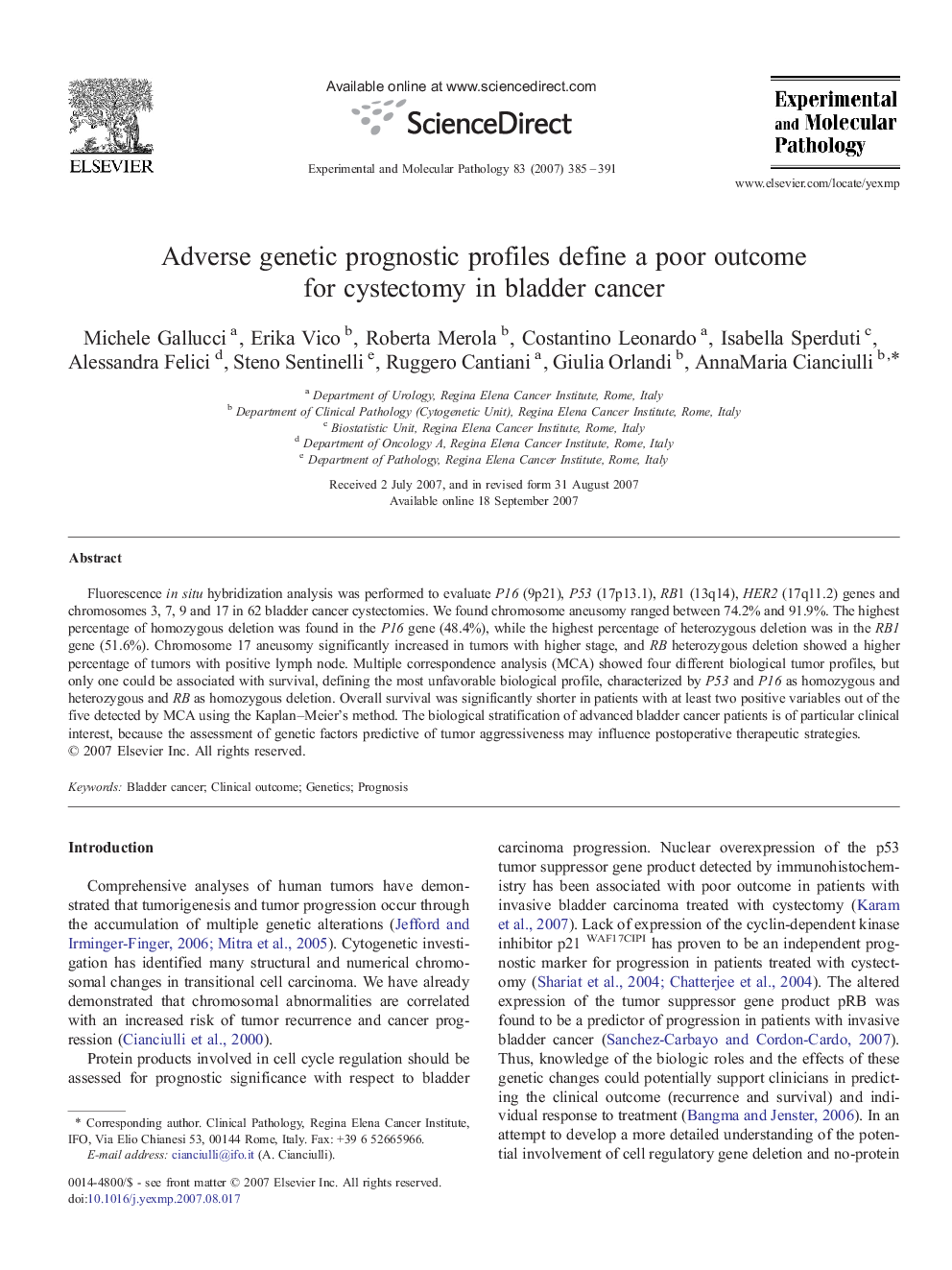| کد مقاله | کد نشریه | سال انتشار | مقاله انگلیسی | نسخه تمام متن |
|---|---|---|---|---|
| 2775816 | 1152346 | 2007 | 7 صفحه PDF | دانلود رایگان |

Fluorescence in situ hybridization analysis was performed to evaluate P16 (9p21), P53 (17p13.1), RB1 (13q14), HER2 (17q11.2) genes and chromosomes 3, 7, 9 and 17 in 62 bladder cancer cystectomies. We found chromosome aneusomy ranged between 74.2% and 91.9%. The highest percentage of homozygous deletion was found in the P16 gene (48.4%), while the highest percentage of heterozygous deletion was in the RB1 gene (51.6%). Chromosome 17 aneusomy significantly increased in tumors with higher stage, and RB heterozygous deletion showed a higher percentage of tumors with positive lymph node. Multiple correspondence analysis (MCA) showed four different biological tumor profiles, but only one could be associated with survival, defining the most unfavorable biological profile, characterized by P53 and P16 as homozygous and heterozygous and RB as homozygous deletion. Overall survival was significantly shorter in patients with at least two positive variables out of the five detected by MCA using the Kaplan–Meier's method. The biological stratification of advanced bladder cancer patients is of particular clinical interest, because the assessment of genetic factors predictive of tumor aggressiveness may influence postoperative therapeutic strategies.
Journal: Experimental and Molecular Pathology - Volume 83, Issue 3, December 2007, Pages 385–391